Sponsored by Santa Clara Law Review
Co-Sponsored with the Edwin Heafey Center for Trial and Appellate Advocacy
(Conducted remotely via Zoom – Zoom link will be sent to registrants)
7.25 hours of MCLE credit will be offered for attendance. If interested, please contact Don Polden or Michael Kelker.
The 2022 Santa Clara Law Review Symposium will consider the topic of the impacts of the recent COVID pandemic on the legal profession, including legal education, employment, public health, and other topics. The Symposium speakers will also discuss what those institutions have learned from the pandemic and how that will shape the future of legal institutions and social arrangements.
The Symposium will be conducted virtually although Santa Clara students and faculty can participate in a dedicated classroom in Charney Hall.
The Symposium will feature scholars, legal professionals, government officials, and community leaders from across the country to discuss an array of legal issues regarding return to work, professional life and school during the COVID-19 pandemic. This broad topic is one of the most discussed in contemporary literature and press concerning the legal profession, legal education, the judiciary, governmental bodies and others and we think the Symposium will have some important ideas and solutions to offer.
Some of the topics the Symposium will explore are:
- Return to Work: legal challenges for employers and employees, the future of remote work, and public health/vaccine questions.
- Return to School: how legal institutions and legal education are adapting to the pandemic and what to expect in the future crisis.
- Lawyering in the Pandemic: how lawyering has changed during the pandemic and what changes we expect to see in the future.
Symposium Schedule: (all times Pacific Standard Time)
| 8:00 a.m. |
Welcome Marissa Blasing, Editor in Chief Michael Kelker, Senior Symposium Editor Santa Clara Law Review |
| 8:15 a.m. – 8:45 a.m. |
Opening Remarks Presentation Professor Meera Deo |
| 9:00 a.m. – 10:30 a.m. |
Panel I: The Return to School: Legal Education in our Post-Pandemic New Normal Dean Michael Kaufman (Moderator) Dean Danielle Conway Professor Sarah Boonin Professor Luz Herrera |
| 10:45 a.m. – 12:15 p.m. |
Panel II: The Impact of the Pandemic (and other Challenges) on Legal Profession and Public Institutions Professor Mark Michels (Moderator) Professor Dorit Reiss Professor Isaac Mamaysky Professor Donald J. Polden |
| 12:30 p.m. |
Keynote Address: William Henderson, Indiana University |
| 1:30 p.m. – 3:00 p.m. |
Panel lII: Employment Law and the Return to Work Professor Donald Polden (Moderator) Professor Orly Lobel Professor Matthew Bodie Brielle Valle – Brielle Valle Consulting |
| 3:15 p.m. – 4:30 p.m. |
Panel IV: Presentations of Law Students: Resilience, Empathy and Moving Forward This panel will feature law student perspectives on the impact of the COVID pandemic, economic and market challenges, and social justice movements on their legal education and their futures in the legal profession. |
| 4:30 p.m – 5:00 p.m. |
Summary of Proceedings and Concluding Remarks Marissa Blasing Michael Kelker |
Speaker Bios:
|
|
|
Prior to joining Suffolk’s faculty, Professor Boonin spent five years teaching and practicing in a family and domestic violence clinic at Harvard Law School. There, she launched and ran a medical-legal collaboration with Boston area hospitals aimed at providing comprehensive legal services to low-income survivors of domestic violence. Professor Boonin received a prestigious two-year Skadden Fellowship to launch the program. Immediately after graduating from Harvard Law School, Professor Boonin served as Law Clerk to the Honorable Justice Judith A. Cowin of the Supreme Judicial Court of Massachusetts. Professor Boonin holds her B.A. from Duke University and her J.D. from Harvard Law School. Prior to law school, she worked for four years for a national women’s rights organization on issues of reproductive health and rights. |
|
Prior to her deanships, Dean Conway was a member of the faculties at the Georgetown University Law Center and the University of Memphis Cecil C. Humphreys School of Law. She also served as a Fulbright Senior Scholar in Australia and later as Chair in Law at LaTrobe University, Faculty of Law & Management in Australia. Dean Conway is the author or editor of six books and casebooks as well as numerous book chapters, articles, and essays. Her scholarly agenda and speeches have focused on, among other areas, advocating for public education and for actualizing the rights of marginalized groups, including Indigenous Peoples, minoritized people, and members of rural communities. Dean Conway’s most recent publication focuses on different aspects of building an antiracist law school, legal academy, and legal profession through leadership, vision priorities, and transformational diversity, equity, and inclusion-focused admissions and faculty and staff recruitment and retention. |
|
|
|
Based on his research and public speaking, Professor Henderson was included on the National Law Journal’s list of The 100 Most Influential Lawyers in America (complied every ten years). In 2015 and 2016, he was named the Most Influential Person in Legal Education by The National Jurist magazine. |
|
Before entering academia, Prof. Herrera ran her own practice and founded Community Lawyers, Inc., a non-profit organization that encourages access to affordable legal services and develops innovative opportunities for legal professionals in underserved communities. These experiences have influenced her scholarship that promotes legal “low bono” service delivery models and post-graduate support programs for lawyers starting their own law firms. Dean Herrera currently serves as a special advisor for the American Bar Association’s Commission on Hispanic Legal Rights and Responsibilities. Prior to her current position, Dean Herrera was the Assistant Dean for Clinical Education, Experiential Learning and Public Service at UCLA School of Law. She has also taught as a visiting a visiting clinical professor at the University of California, Irvine School of Law, an assistant professor at Thomas Jefferson School of Law, a visiting professor at Chapman University School of Law and a Senior Clinical Fellow at Harvard Law School. In her various academic positions, Dean Herrera encouraged innovation and promoted access to justice through experiential learning. |
|
Professor Lobel is the recipient of several prestigious research grants from the Robert Wood Johnson Foundation, the American Bar Association litigation Fund, the Searle-Kauffman Fellowship, the Southern California Innovation Project, and Netspar, University of Tilburg. She is a member of the American Law Institute and serves on the advisory boards of the San Diego Lawyer Chapter of the American Constitution Society, the Employee Rights Center, and the Oxford Handbook on Governance. Her articles have won several awards including the Thorsnes Prize for Outstanding Legal Scholarship and the Irving Oberman Memorial Award. Lobel is a frequent speaker at universities throughout Asia, Europe and North America. She was USD’s Herzog Endowed Scholar for the 2012-13 academic year. Lobel was the 2013-14 recipient of USD’s Thorsnes Prize for Outstanding Legal Scholarship. |
|
In addition to his practice, Mr. Mamaysky teaches in Albany Law School’s Human Resources: Law, Leadership, and Policy Program, where his classes focus on the intersection of employment law, ethics and compliance, and human resources. He has published and been quoted in dozens of articles on these topics, including in Fortune Magazine, Yahoo Finance, Lexis Nexis’ Law360, the Society for Human Resource Management, and other publications. Mr. Mamaysky also wrote the book Letter to a One L Friend (Carolina Academic Press, 2019), which helps students navigate the challenges of law school. |
|
|
|
|
|
Professor Reiss’ initial research examined accountability of administrative agencies at the state, national and international level, using as case studies the California Public Utility Commission (CPUC), the FAA, and other agencies in the United States and Europe. Her current research and activities focus on legal and policy issues related to vaccines. She writes about vaccines mandates, policy responses to non-vaccinating, tort issues and administrative issues related to vaccines, and the anti-vaccine movement. |
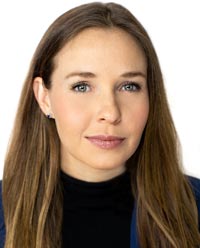
Brielle Valle, the owner of Brielle Valle Consulting, a leadership consulting firm focused on educating and empowering middle management, and delivering women’s equity programming, has 15 years of experience in Organizational Communication and Corporate Development. Valle holds a B.S. in Communication, an M.S. in Organizational Communication and Leadership, a certificate in Diversity and Inclusion, is Predictive Index certified, and has 40 credits toward a doctorate degree in Business Leadership. She has published works in SAGE Publications Ltd., Information Age Publishing, and Pearson. Her recent research and publication aim to support corporations in identifying inequality and also reaching equality through understanding crisis preparation and crisis recovery. |
Student Panel Biographies
|
|
|
Ms. Corona attended the University of California, Los Angeles for her undergraduate studies. She earned her Bachelor’s Degree with a major in Political Science and a minor in the Study of Religion in 2019. While attending UCLA, she worked as a peer tutor with the Athletic Department and a supervisor in dining services. Ms. Corona is now completing her final semester at Santa Clara University, School of Law. She is a Senior Associate for the university’s Journal of International Law, the President of the Family Law Society, and a Representative of the Criminal Law Society. During her legal training, she has been a law clerk with the Santa Clara County District Attorney’s Office, the San Mateo Superior Court, and the San Mateo County District Attorney’s Office. As a law clerk, she has seen first hand the effects the COVID-19 pandemic has had on criminal and family law proceedings. Ms. Corona has secured a Post-Bar internship with the San Bernardino County District Attorney’s Office and hopes to secure employment as a criminal prosecutor. |
|
|
|
Patricio did his undergrad at UC Berkeley, where he majored in Philosophy. Before coming to law school, he got his master’s degree at San Jose State, where he also lived one of his dreams and taught for a year. Patricio is involved on campus, where he serves on the board of the High-Tech Law Journal, as well as holding other board positions in various student organizations. He also writes for the law school newspaper (2020 and 2021 ABA award winner!) In his spare time, Patricio loves to go on hikes, spend time with family, and compete in video game tournaments. He also gardens annually. |
Speaker Papers
Student Papers
Jasmine Corona Leadership paper
Patricio Munoz Hernandez paper
Register for the 2022 Law Review Symposium

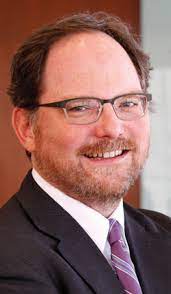 Matthew Bodie‘s research focuses on the role of information, control, and ownership within the corporation and the workplace. He is particularly interested in the role of the employee within the firm. Bodie has published over 40 journal articles, essays, and book chapters. His papers have been selected for presentation by the American Law & Economics Association, the Stanford/Yale Junior Faculty Forum, the Labour Law Research Network, and the Association of American Law Schools. He has coauthored a series of articles on corporate governance and voting rights with Professor Grant Hayden of SMU Dedman School of Law, and they are at work on a related book to be published by Cambridge University Press. He served as Reporter for the American Law Institute’s Restatement of Employment Law and was the primary author for the chapter on employee privacy and autonomy. Bodie has written opinion pieces for the New York Times, the St. Louis Post-Dispatch, U.S. News & World Report, and Quartz, and has been quoted in such publications as the New York Times, the Wall Street Journal, and the New Republic. He is a contributor and section editor to the Worklaw section for Jotwell.
Matthew Bodie‘s research focuses on the role of information, control, and ownership within the corporation and the workplace. He is particularly interested in the role of the employee within the firm. Bodie has published over 40 journal articles, essays, and book chapters. His papers have been selected for presentation by the American Law & Economics Association, the Stanford/Yale Junior Faculty Forum, the Labour Law Research Network, and the Association of American Law Schools. He has coauthored a series of articles on corporate governance and voting rights with Professor Grant Hayden of SMU Dedman School of Law, and they are at work on a related book to be published by Cambridge University Press. He served as Reporter for the American Law Institute’s Restatement of Employment Law and was the primary author for the chapter on employee privacy and autonomy. Bodie has written opinion pieces for the New York Times, the St. Louis Post-Dispatch, U.S. News & World Report, and Quartz, and has been quoted in such publications as the New York Times, the Wall Street Journal, and the New Republic. He is a contributor and section editor to the Worklaw section for Jotwell.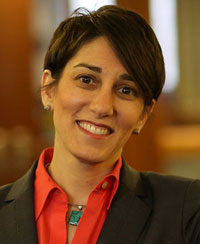 Sarah Boonin teaches in the areas of mental health and disability law, women’s reproductive health, and legal ethics. She designed and teaches Suffolk’s first Health Law Clinic. The Clinic provides students with an opportunity to hone their legal skills under close supervision through live client practice in the areas of guardianship, Social Security disability practice, and healthcare benefits. Professor Boonin and her clinical students specialize in serving clients with complex mental health needs. Professor Boonin serves as the Director of Clinical Programs. She is a faculty affiliate to the Center for Women’s Health and Human Rights.
Sarah Boonin teaches in the areas of mental health and disability law, women’s reproductive health, and legal ethics. She designed and teaches Suffolk’s first Health Law Clinic. The Clinic provides students with an opportunity to hone their legal skills under close supervision through live client practice in the areas of guardianship, Social Security disability practice, and healthcare benefits. Professor Boonin and her clinical students specialize in serving clients with complex mental health needs. Professor Boonin serves as the Director of Clinical Programs. She is a faculty affiliate to the Center for Women’s Health and Human Rights.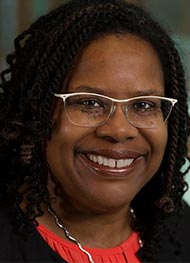 Danielle M. Conway is the Dean and Donald J. Farage Professor of Law at Penn State Dickinson Law. A leading expert in procurement law, entrepreneurship, intellectual property law, and licensing intellectual property, Dean Conway joined Dickinson Law after serving for four years as dean of the University of Maine School of Law and 14 years on the faculty of the University of Hawai’i at Mānoa, William S. Richardson School of Law, where she was the inaugural Michael J. Marks Distinguished Professor of Business Law.
Danielle M. Conway is the Dean and Donald J. Farage Professor of Law at Penn State Dickinson Law. A leading expert in procurement law, entrepreneurship, intellectual property law, and licensing intellectual property, Dean Conway joined Dickinson Law after serving for four years as dean of the University of Maine School of Law and 14 years on the faculty of the University of Hawai’i at Mānoa, William S. Richardson School of Law, where she was the inaugural Michael J. Marks Distinguished Professor of Business Law.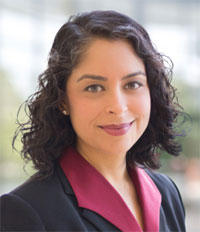 Meera E. Deo is a national expert on legal education, racial representation, and diversity, equity, and inclusion. She is also Director of the Law School Survey of Student Engagement (LSSSE), which houses the largest repository of law student data and is based at Indiana University-Bloomington. Before joining Southwestern, she was a tenured Professor of Law at Thomas Jefferson School of Law in San Diego. Professor Deo has also held previous visiting positions at Berkeley Law, UC Irvine School of Law, UCLA School of Law, UC Davis School of Law, and New College of Florida. She teaches Civil Procedure, Evidence, Law & Society, and Race & Law. Her research utilizes empirical methods to interrogate institutional diversity, affirmative action, and Critical Race Theory. Professor Deo’s scholarship has been widely published in law reviews and peer-review journals and cited in numerous amicus briefs filed in the U.S. Supreme Court. In 2020, she was elected to the American Law Institute.
Meera E. Deo is a national expert on legal education, racial representation, and diversity, equity, and inclusion. She is also Director of the Law School Survey of Student Engagement (LSSSE), which houses the largest repository of law student data and is based at Indiana University-Bloomington. Before joining Southwestern, she was a tenured Professor of Law at Thomas Jefferson School of Law in San Diego. Professor Deo has also held previous visiting positions at Berkeley Law, UC Irvine School of Law, UCLA School of Law, UC Davis School of Law, and New College of Florida. She teaches Civil Procedure, Evidence, Law & Society, and Race & Law. Her research utilizes empirical methods to interrogate institutional diversity, affirmative action, and Critical Race Theory. Professor Deo’s scholarship has been widely published in law reviews and peer-review journals and cited in numerous amicus briefs filed in the U.S. Supreme Court. In 2020, she was elected to the American Law Institute.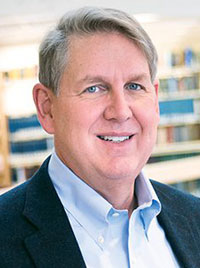 Professor William Henderson joined the Indiana University faculty in 2003 and now serves as the Stephen F. Burns Chair on the Legal Profession. His research focuses primarily on the empirical analysis of the legal profession and has appeared in leading legal journals, including the Stanford Law Review, the Michigan Law Review, and the Texas Law Review. Professor Henderson regularly publishes articles in The American Lawyer, The ABA Journal, and The National Law Journal. His observations on the legal market are also frequently quoted in the mainstream press, including the New York Times, Wall Street Journal, Los Angeles Times, Atlantic Monthly, The Economist, and National Public Radio.
Professor William Henderson joined the Indiana University faculty in 2003 and now serves as the Stephen F. Burns Chair on the Legal Profession. His research focuses primarily on the empirical analysis of the legal profession and has appeared in leading legal journals, including the Stanford Law Review, the Michigan Law Review, and the Texas Law Review. Professor Henderson regularly publishes articles in The American Lawyer, The ABA Journal, and The National Law Journal. His observations on the legal market are also frequently quoted in the mainstream press, including the New York Times, Wall Street Journal, Los Angeles Times, Atlantic Monthly, The Economist, and National Public Radio.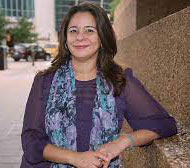 Luz E. Herrera is a Professor of Law and Associate Dean for Experiential Education at Texas A&M School of Law. Dean Herrera promotes entrepreneurial efforts to address the access to civil justice gap.
Luz E. Herrera is a Professor of Law and Associate Dean for Experiential Education at Texas A&M School of Law. Dean Herrera promotes entrepreneurial efforts to address the access to civil justice gap.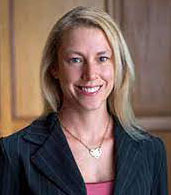 Professor Orly Lobel clerked on the Israeli Supreme Court. She taught at Yale Law School and served as a fellow at Harvard University Center for Ethics and the Professions, the Kennedy School of Government, and the Weatherhead Center for International Affairs. She joined the USD School of Law faculty in 2005.
Professor Orly Lobel clerked on the Israeli Supreme Court. She taught at Yale Law School and served as a fellow at Harvard University Center for Ethics and the Professions, the Kennedy School of Government, and the Weatherhead Center for International Affairs. She joined the USD School of Law faculty in 2005.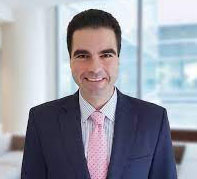 Isaac Mamaysky is a Partner who provides strategic business, employment law, and compliance guidance to management teams, in-house attorneys, and human resources professionals across industries. Mr. Mamaysky regularly advises clients on corporate ethics and compliance matters, conducts internal investigations, writes and assesses internal employment policies and employee handbooks, leads complex negotiations, drafts commercial contracts, and helps clients comply with various regulatory regimes.
Isaac Mamaysky is a Partner who provides strategic business, employment law, and compliance guidance to management teams, in-house attorneys, and human resources professionals across industries. Mr. Mamaysky regularly advises clients on corporate ethics and compliance matters, conducts internal investigations, writes and assesses internal employment policies and employee handbooks, leads complex negotiations, drafts commercial contracts, and helps clients comply with various regulatory regimes.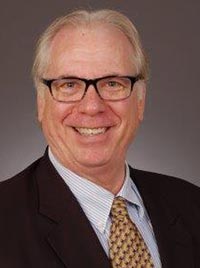 Mark Michels has been a Lecturer at Santa Clara Law for ten years. He teaches ediscovery, IP Litigation, and Leadership for Lawyers. He was a Learning & Development Senior Manager at Winston & Strawn and he is a retired Managing Director from Deloitte’s Discovery practice. Prior to joining Deloitte, he spent 11 years as litigation manager at Cisco Systems where he focused on litigation management (commercial and patent) and electronic discovery. Prior to joining Cisco, Mark was an attorney at the international law firm McKenna and Cuneo. Mark received his JD from the Georgetown University Law Center and a Bachelor of Science in Foreign Service from Georgetown University’s School of Foreign Service.
Mark Michels has been a Lecturer at Santa Clara Law for ten years. He teaches ediscovery, IP Litigation, and Leadership for Lawyers. He was a Learning & Development Senior Manager at Winston & Strawn and he is a retired Managing Director from Deloitte’s Discovery practice. Prior to joining Deloitte, he spent 11 years as litigation manager at Cisco Systems where he focused on litigation management (commercial and patent) and electronic discovery. Prior to joining Cisco, Mark was an attorney at the international law firm McKenna and Cuneo. Mark received his JD from the Georgetown University Law Center and a Bachelor of Science in Foreign Service from Georgetown University’s School of Foreign Service.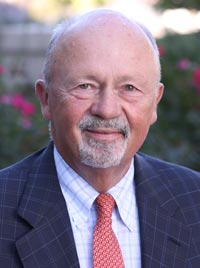 Professor Don Polden served as Dean of Santa Clara University School of Law from 2003 to 2013. In addition to his service as dean, he is a well-known scholar in the areas of employment law and legal education and has practiced law, principally in the areas of federal antitrust law and employment law, in the federal and state courts. He is co-author (with U.S. District Court Judge Mark Bennett) of Employment Relationships: Law and Practice, published by Aspen Publishing Company. He also is the author of several law review articles on topics of federal antitrust and securities law and legal education and he is a contributing writer on employment law and business topics to Huffington Post.
Professor Don Polden served as Dean of Santa Clara University School of Law from 2003 to 2013. In addition to his service as dean, he is a well-known scholar in the areas of employment law and legal education and has practiced law, principally in the areas of federal antitrust law and employment law, in the federal and state courts. He is co-author (with U.S. District Court Judge Mark Bennett) of Employment Relationships: Law and Practice, published by Aspen Publishing Company. He also is the author of several law review articles on topics of federal antitrust and securities law and legal education and he is a contributing writer on employment law and business topics to Huffington Post.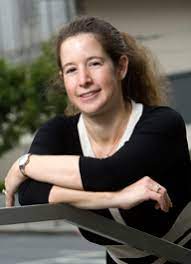 Professor Dorit Rubinstein Reiss received her undergraduate degree in Law and Political Science from the Faculty of Law in the Hebrew University of Jerusalem and her Ph.D. from the Jurisprudence and Social Policy program in UC Berkeley, writing her dissertation on accountability in the liberalized telecommunications and electricity sectors in England, France and Sweden.
Professor Dorit Rubinstein Reiss received her undergraduate degree in Law and Political Science from the Faculty of Law in the Hebrew University of Jerusalem and her Ph.D. from the Jurisprudence and Social Policy program in UC Berkeley, writing her dissertation on accountability in the liberalized telecommunications and electricity sectors in England, France and Sweden.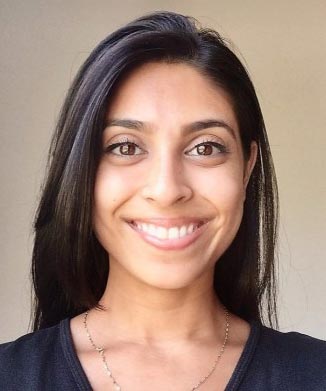 Sonya Chalaka is a third-year law student at Santa Clara Law. She completed her undergraduate studies in Psychology and Cell and Molecular Biology at Santa Clara University before earning her Masters in Global Health from UCSF. Sonya currently serves as the Director for the Honors Moot Court Internal Program, is a returning member of the External Trial Team, and a Clinical Student with the Northern California Innocence Project. She is passionate about proactive advocacy and disruptive leadership.
Sonya Chalaka is a third-year law student at Santa Clara Law. She completed her undergraduate studies in Psychology and Cell and Molecular Biology at Santa Clara University before earning her Masters in Global Health from UCSF. Sonya currently serves as the Director for the Honors Moot Court Internal Program, is a returning member of the External Trial Team, and a Clinical Student with the Northern California Innocence Project. She is passionate about proactive advocacy and disruptive leadership.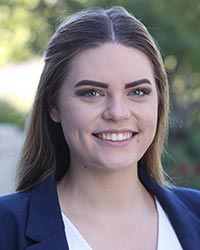 Jasmine Corona is from Whittier, Ca, a city in Los Angeles County. She grew up in a large blended family with her twin sister, five younger sisters, and two younger brothers. She is proud of her Mexican heritage and for her accomplishment as the first in her family to attend graduate school.
Jasmine Corona is from Whittier, Ca, a city in Los Angeles County. She grew up in a large blended family with her twin sister, five younger sisters, and two younger brothers. She is proud of her Mexican heritage and for her accomplishment as the first in her family to attend graduate school.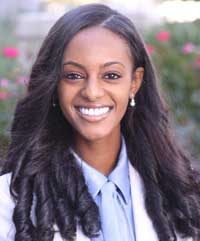 Leah Mesfin is a third-year law student at Santa Clara Law. Prior to law school, she attended American University in Washington, D.C., where she received a bachelor’s degree in International Relations. During her time in law school, Leah has worked with SCU’s criminal law professors on an open-source casebook project; served as the Assistant Chair of the Galloway Criminal Moot Court competition, Co-President of the Black Law Student Association, and member of the Honors Moot Court Internal board; and has competed on the law school’s Trial Team. Leah is currently a clinical student with the Northern California Innocence Project, contributing to the advancement of casework for individuals challenging their wrongful convictions in both state and federal court. Leah has spent the last two summers at the Contra Costa County DA’s Office and is passionate about using her law degree to contribute to criminal justice reform through progressive prosecutorial practices. Leah will continue at the Contra Costa County DA’s Office next August as a post-bar law clerk.
Leah Mesfin is a third-year law student at Santa Clara Law. Prior to law school, she attended American University in Washington, D.C., where she received a bachelor’s degree in International Relations. During her time in law school, Leah has worked with SCU’s criminal law professors on an open-source casebook project; served as the Assistant Chair of the Galloway Criminal Moot Court competition, Co-President of the Black Law Student Association, and member of the Honors Moot Court Internal board; and has competed on the law school’s Trial Team. Leah is currently a clinical student with the Northern California Innocence Project, contributing to the advancement of casework for individuals challenging their wrongful convictions in both state and federal court. Leah has spent the last two summers at the Contra Costa County DA’s Office and is passionate about using her law degree to contribute to criminal justice reform through progressive prosecutorial practices. Leah will continue at the Contra Costa County DA’s Office next August as a post-bar law clerk.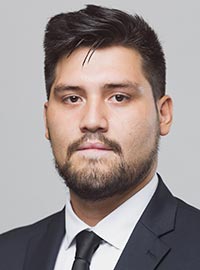 Patricio Munoz-Hernandez is a 3L in the Tech Edge J.D. program at Santa Clara Law. His focus is on technology transactions, intellectual property, privacy/cybersecurity, and corporate law. Patricio is from and currently lives in San Jose, CA. As the son of immigrants, he knows the value of perseverance. He has overcome social and economic barriers to pursue his dreams.
Patricio Munoz-Hernandez is a 3L in the Tech Edge J.D. program at Santa Clara Law. His focus is on technology transactions, intellectual property, privacy/cybersecurity, and corporate law. Patricio is from and currently lives in San Jose, CA. As the son of immigrants, he knows the value of perseverance. He has overcome social and economic barriers to pursue his dreams.